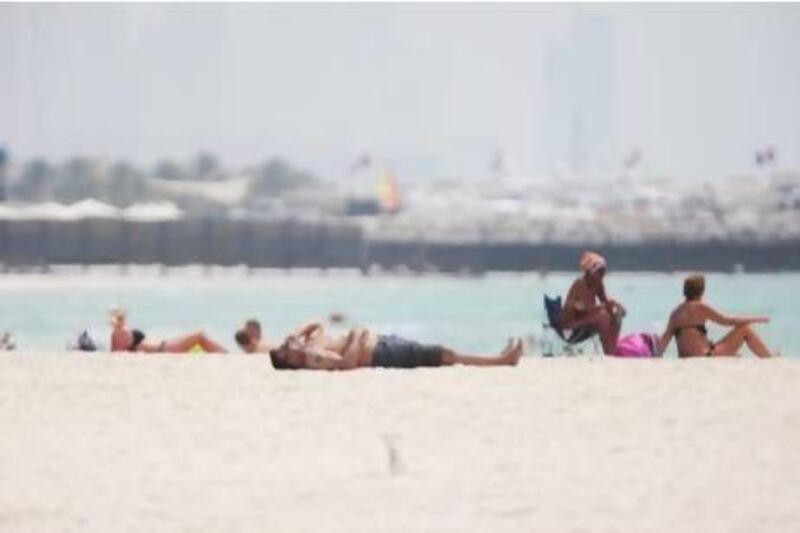Statements by doctors can lead to confusion
I refer to the news article Brave UAE summer heat for dose of Vitamin D, doctors urge (August 8).
Such advice by doctors is sometimes misleading and can cause confusion.
About 90 per cent of a person's recommended intake of Vitamin D is produced by the body in response to the sun's ultraviolet rays. But soaring summer temperatures mean many in the UAE stay indoors. Some doctors show this as a reason for Vitamin D deficiency in summer. I am not convinced.
Most of us are exposed to enough sunlight even if we don't want to get out in the scorching heat. As I understand it, to get Vitamin D in our bodies, we do not need to stand directly under the sun. Our physical mechanism is such that we get it even from indirect sunlight when we are driving or sitting near the window through which natural light comes.
If these doctors are to be believed, most of the people in Europe would suffer from diseases related to Vitamin D deficiencies. People in the Middle East are lucky in the sense that they get abundant sunlight throughout the year.
These statements can confuse people and lead them to take medicines unnecessarily.
Peter Dominic, Canada
Assimilation is a two-way process
I refer to Peter Hellyer's opinion article Expatriates in a bubble can export wrong image of the UAE (August 6).
Mr Hellyer is right that expatriates in the UAE should assimilate into the local culture. But, as Paul Lebrun has pointed out in his letter (Putting blame on expatriates in UAE is not always right, August 9), you cannot focus only on expats over this issue.
Expatriates have a reason not to be proactive. That is, they have no hope of getting citizenship in this country. All of us must leave the UAE at some point. That is the reason many residents are not interested in assimilating into Emirati culture. That said, it is not right to presume that all expatriates have the same attitude. The report Expats fast to discover the rewards of Ramadan (August 10) is proof that there are exceptions.
For Lauren Doble, a communications executive at the Arabian Gulf League, formerly the UAE Pro League, it was the second year she tried fasting. Ms Doble, from England, said the process is eased because she is surrounded by Emiratis. When she first came to the UAE last year, she lived for three months with an Emirati family.
Elisha Elliott, from Australia, has also been in the UAE for two years. Last year she fasted for one day and this year she increased her fasting to 15 days.
Like these people, Emiratis should also try to understand other people's cultures. It's a two-way process. By knowing other cultures people certainly benefit. If Emiratis learn about other cultures, I think they would not lose anything.
Sunita Joshi, India
Universal address helps everyone
I am commenting on the news article First phase of new Dubai address system completed (June 20).
There is an address system called the Universal Address System that generates an eight- or 10-character unique universal address for every house, building, park bench, street light or fire hydrant in the world. The universal address can be used to sort mail and obtain door-to-door navigation service to any location in the world. Anybody can obtain a universal address and use it to get local search and turn-by-turn driving directions. For example, the address ML5K M5ZJ is already pinpointed as the entrance of the Buji Khalifa building.
Using the universal addresses instead of Dubai's own geo-address system could make Dubai a true international city.
Xinhang Shen, Canada
Take a cue from Sweden's policy
I am commenting on the opinion article Europe may have to play a bigger role in Palestine (August 9).
What Sweden did worked. Sweden said it would reduce its contribution to the United Nations Relief and Works Agency if the Palestinians did not get back into peace negotiations with Israel. After the Palestinian Authority complied, Carl Bildt, Sweden's foreign minister, said he was very pleased.
Strong-arm tactics such as these will have to be applied to both Israel and the Palestinian Authority.
Tim Upham, UK





